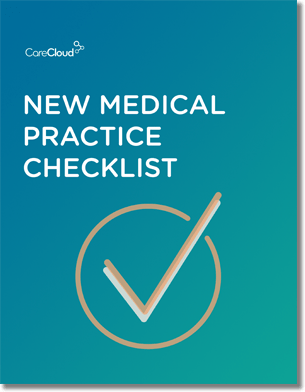In a captivating piece for the WSJ’s Tech Europe blog, Ben Rooney postulates that health care may serve as the ‘next frontier’ for big data.
First, the two-syllable term is foreign to many outside of the IT field. Big data means that as datasets grow to unfathomable extents, they develop the ability to collect and interpret massive amounts of information – via everything from social media posts to smartphone GPS coordinates.
In the very near future, computers like IBM’s Watson will facilitate the relationships between humans and big data, simplifying pattern recognition within datasets and facilitating collaboration in every field.
However, the very concept of “big data” clashes with traditional health care. As Rooney explains, “health care has been delivered by one doctor looking at one patient with only the information the doctor has at the time.”
Even when larger volumes of data can be acquired, it’s notoriously meddlesome and expensive, and the data collected by health services from labs, hospitals and physicians is often biased, seeing as people who visit doctors frequently are the ill and elderly, plus the occasional hypochondriac.
Now imagine a doctor with access to thousands of patients at his fingertips. Among other things, physicians would be able to foresee precursors to certain medical conditions, particularly when dealing with low-frequency events.
The key is to get run-of-the-mill patients to share their medical information voluntarily. Rooney cites Cambridge Temperature Concepts in the UK, who creates a product to help women with fertility problems. Women wear sensors that record movement and body temperature around the clock, which records valuable medical information.
While the goal for women using the device is to predict ovulation, how can the voluntary disclosure of patient information be incentivized in situations where the benefits aren’t so clear?
Managing director of Replay Digital Chris Edmonds considers this constantly. His company specializes in smartphone apps for asthma patients, who receive advice on controlling their condition as an incentive for disclosing health information and patterns.
So, despite the benefits of democratized technology, health care has remained virtually untouched, which is appalling when considering that 90% of today’s data was created in the last two years.
With the advent of EHRs and mandatory transitions in the US, how much longer will it be until health care and big data are married? CareCloud Executive Vice President Richard Lopez del Rincon has an idea of where to begin the discussion.
“It’s important to examine where data will come from in the future regarding the ‘internet-of-things,’” said Lopez del Rincon. “Future trends will deliver more care in the home for multiple reasons, such as controlling costs, patient satisfaction, etc.”
He continued, “Patients will use devices that will catalyze an ‘explosion’ of data that can be recorded and captured in EHRs, i.e., a scale that sends weight, BMI, and percentage of fat and muscle or glucose monitor that provides blood sugar metrics directly into medical record with potential alerts, or cardiac monitoring providing a variety of cardiac metrics and vitals, on-going and in real-time.”

Do you know what you need when setting up a new medical practice?


